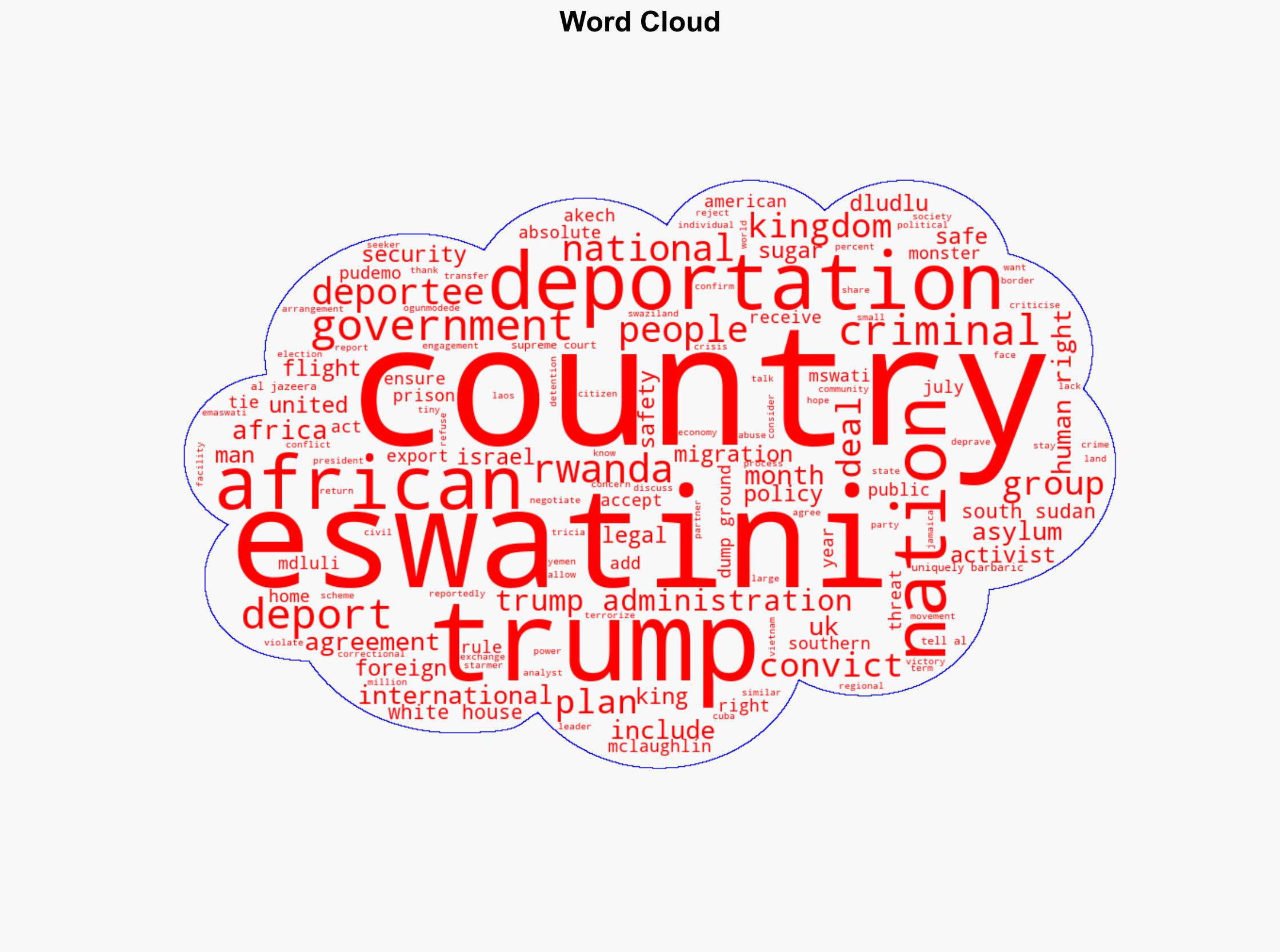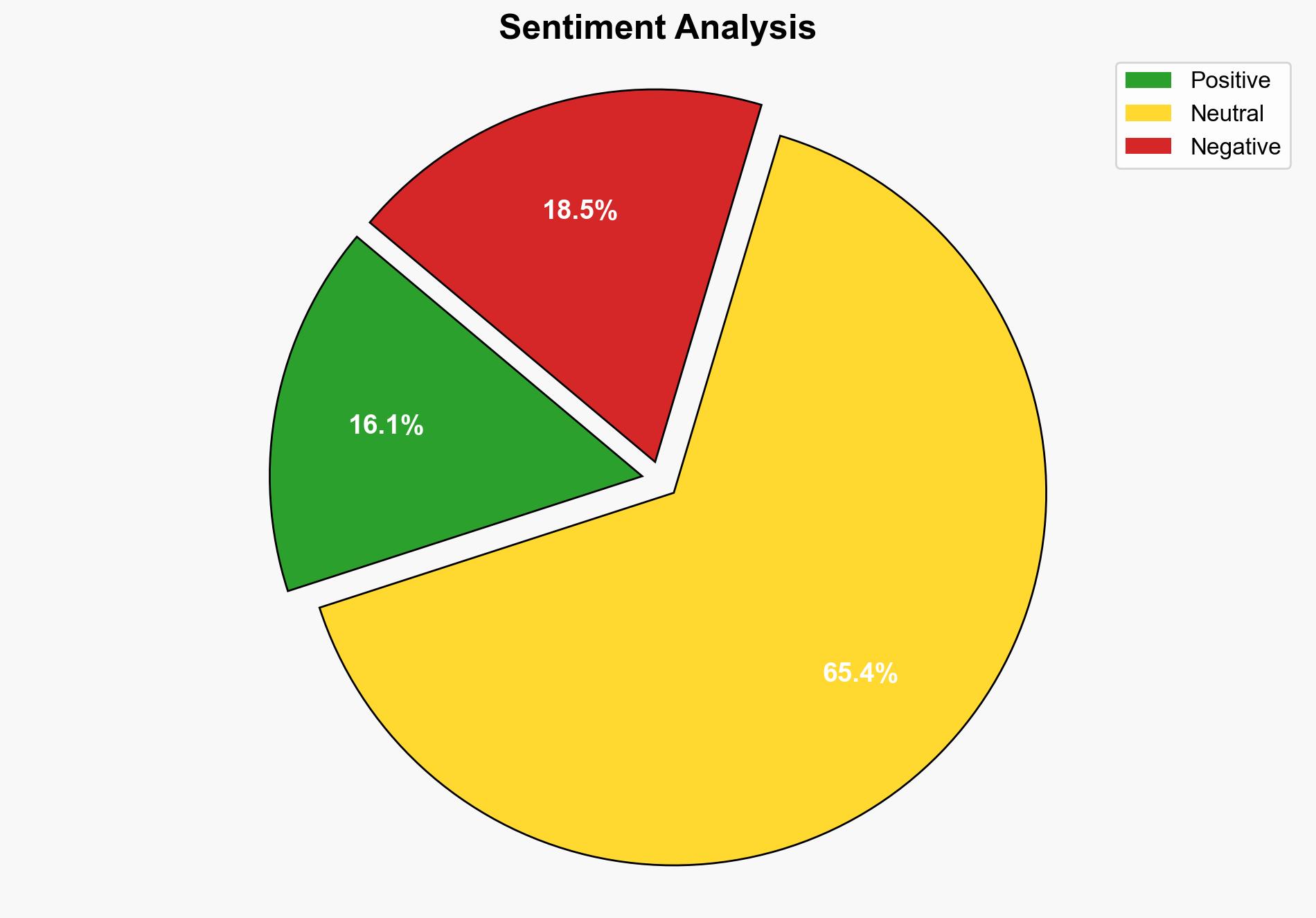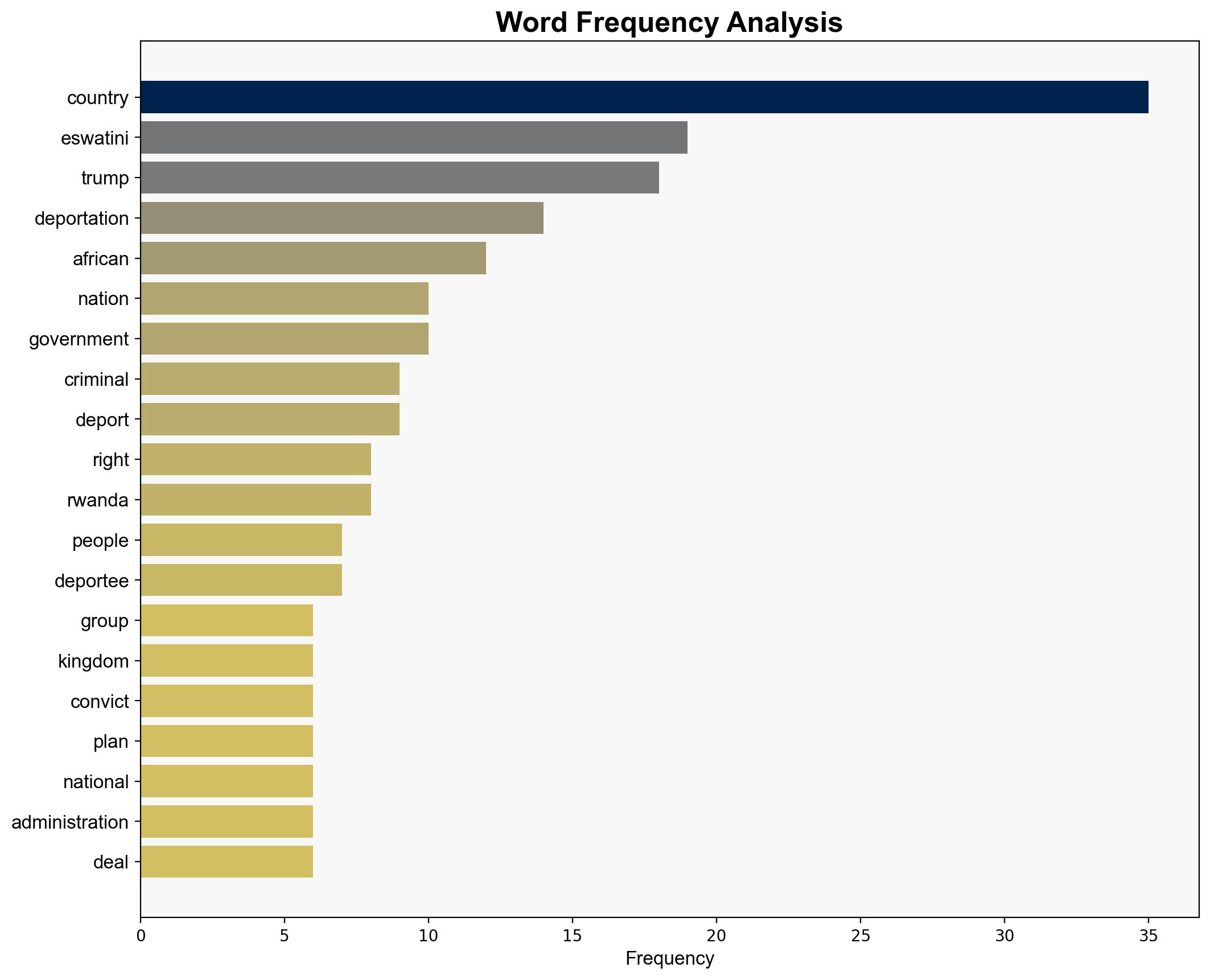Is Trump using Africa as a dumping ground for criminals – Al Jazeera English
Published on: 2025-07-25
Intelligence Report: Is Trump using Africa as a dumping ground for criminals – Al Jazeera English
1. BLUF (Bottom Line Up Front)
The most supported hypothesis is that the Trump administration’s deportation strategy, involving African nations like Eswatini, is primarily driven by diplomatic agreements to manage deportees whose home countries refuse them. This strategy may be perceived as using Africa as a “dumping ground,” but it is more likely a pragmatic solution to a complex immigration issue. Confidence Level: Moderate. Recommended action includes diplomatic engagement with African nations to ensure humane treatment of deportees and transparency in agreements.
2. Competing Hypotheses
1. **Hypothesis A**: The Trump administration is using Africa, specifically countries like Eswatini, as a dumping ground for criminals due to a lack of other options for deportation.
– **Supporting Evidence**: Reports of deportation flights to Eswatini, a country with an absolute monarchy, suggest a strategic choice where human rights concerns may be less prioritized.
2. **Hypothesis B**: The deportation to African countries is part of a broader diplomatic strategy to manage deportees whose home countries refuse them, rather than a deliberate attempt to use Africa as a dumping ground.
– **Supporting Evidence**: The involvement of international organizations and the classification of agreement terms suggest a structured diplomatic effort rather than arbitrary decision-making.
3. Key Assumptions and Red Flags
– **Assumptions**:
– Hypothesis A assumes that the Trump administration prioritizes deportation over human rights.
– Hypothesis B assumes diplomatic agreements are made in good faith and with adequate oversight.
– **Red Flags**:
– Lack of transparency in the terms of agreements with Eswatini.
– Potential bias in reporting from sources critical of the Trump administration.
– Limited information on the conditions and treatment of deportees post-arrival.
4. Implications and Strategic Risks
– **Geopolitical Risks**: Strained relations between the U.S. and African nations if perceived as using them for undesirable purposes.
– **Human Rights Concerns**: Potential for international backlash if deportees face poor conditions or rights abuses.
– **Diplomatic Fallout**: Risk of undermining U.S. credibility in international human rights advocacy.
5. Recommendations and Outlook
- Engage with African Union and United Nations to ensure monitoring and humane treatment of deportees.
- Increase transparency in deportation agreements to mitigate perceptions of exploitation.
- Scenario Projections:
– **Best Case**: Improved diplomatic relations through transparent agreements and humane treatment.
– **Worst Case**: International condemnation and strained diplomatic ties.
– **Most Likely**: Continued criticism balanced by diplomatic engagement efforts.
6. Key Individuals and Entities
– Donald Trump
– Tricia McLaughlin
– Wandile Dludlu
– Daniel Akech
– Thabile Mdluli
7. Thematic Tags
national security threats, human rights, immigration policy, diplomatic relations, Africa




